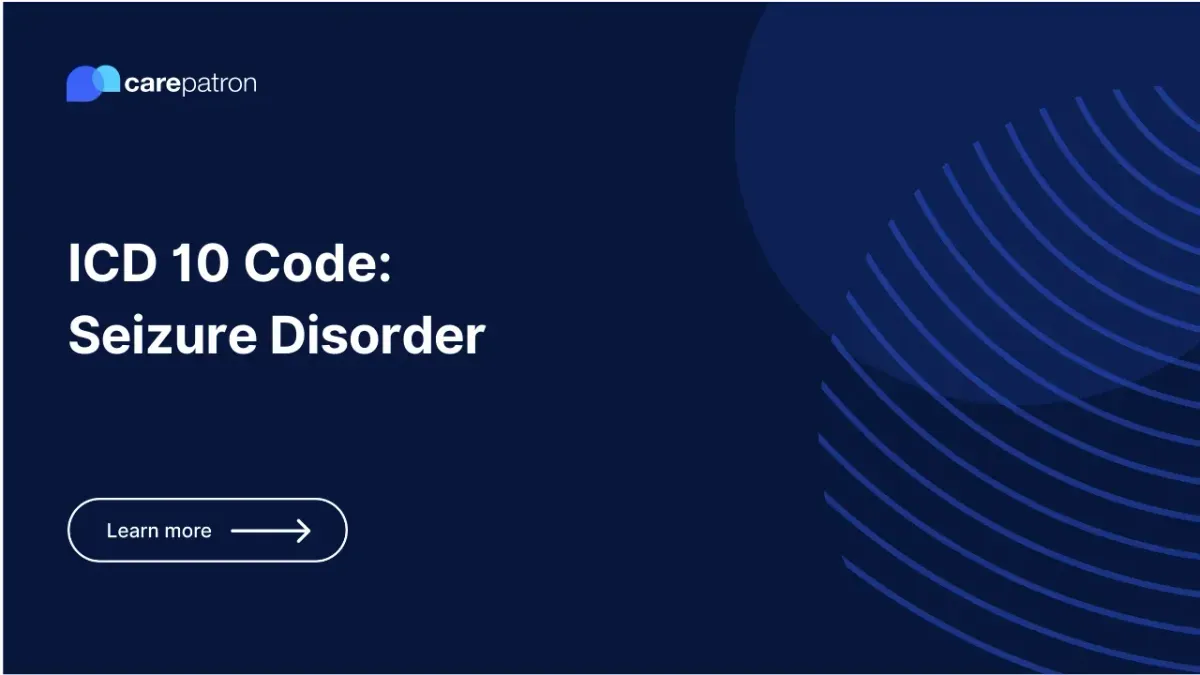
Seizure Disorder ICD-10-CM Codes | 2025
Looking for ICD-10 codes used for seizure disorder? Here's a mini guide to its clinical information, billability, synonyms, and more.
Use Code
Commonly asked questions
You can use a seizure disorder ICD code after you confirm the diagnosis with tests.
Most specific ICD-10 codes used or associated with a seizure disorder are billable.
Common treatments are a healthier diet, medication, brain surgery, and nerve stimulation.
EHR and practice management software
Get started for free
*No credit card required
Free
$0/usd
Unlimited clients
Telehealth
1GB of storage
Client portal text
Automated billing and online payments
